News & Media
Unisa acknowledges the dedication of essential workers
Unisa held a "welcome back" session on 12 May 2020 for staff members who, under the Level 4 lockdown, are permitted to report for duty to offer essential services. The session was led by Unisa’s Vice-Principal for Operations and Facilities, Dr Marcia Socikwa. These are courageous, selfless individuals who are committed to keeping the university open and operational during this trying time. According to the lockdown regulations, most Unisa staff cannot be permitted to report for duty although many are working from home.
While acknowledging that it could not have been easy for the institution’s essential workers, Socikwa appreciates their hard work and dedication for keeping the university safe and running. "Essential services have been working quietly looking after the university assets and supporting compliance with Covid-19 regulations whilst most of us are working from our homes. They are exposed to uncertain public spaces and transport challenges, and still come to work. They work as a team and never complain."
Covid-19 has brought the country to a standstill and most sectors, including high education, are affected. While most Unisa staff members were unable to report for duty due to the pandemic, some essential services had to carry on. Behind the continuity of the services, were courageous, selfless employees who kept Unisa open and operational. |
|
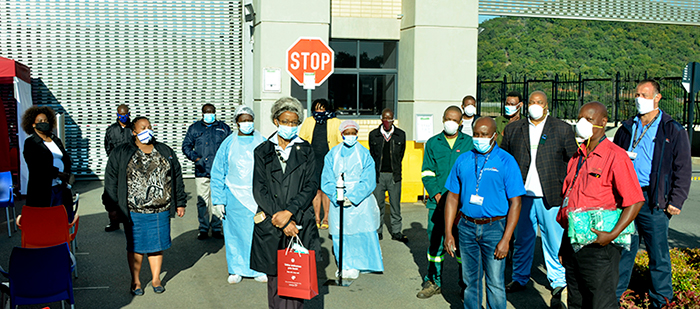
Dr Marcia Socikwa (VP: Operations and Facilities) (front, centre) welcomes back staff to Unisa. |
|
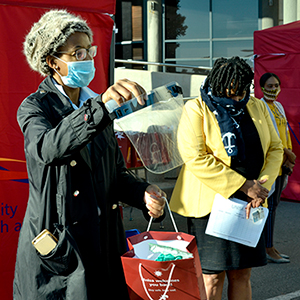 |
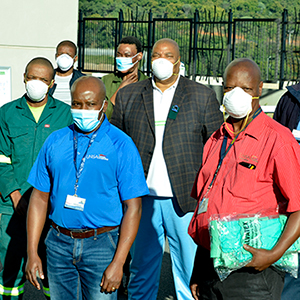 |
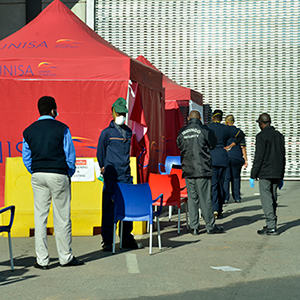 |
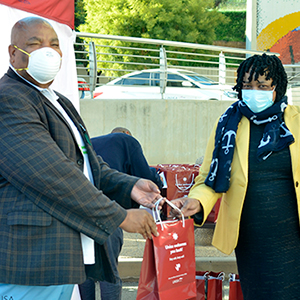 |
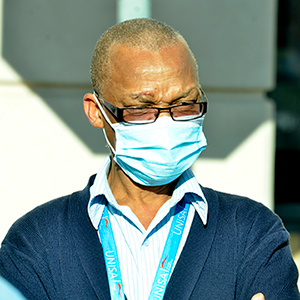 |
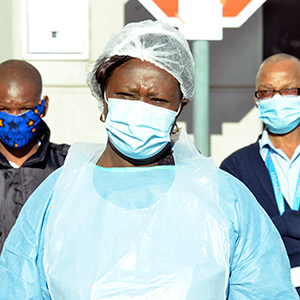 |
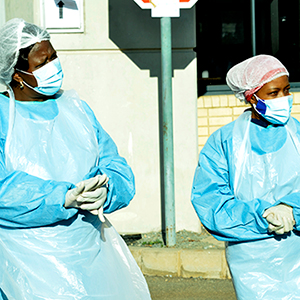 |
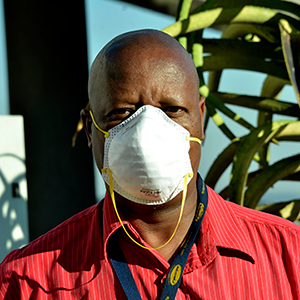 |
The university is not willing to gamble with lives but continues to flatten the curve by educating Unisans and the public, as well as by complying with the lockdown regulations. The university provides essential workers with protective gear and equipment such as cloth masks, facial shields, disposable gloves and sanitisers. Relevant managers are part of the Covid-19 committee as a measure to ensure all their emerging concerns are addressed. Permits were also provided for relevant staff to ensure that they are able to travel without constraints. Also important are the screening services that were introduced to ensure psychological comfort around anxieties related to the virus.
Unisa security officer, Isaac Mafomane, expressed that he feels safe to be at work and does not mind taking an extra mile as the university ensures his safety. He also follows precautionary instructions recommended by the health minister, Dr Zweli Mkhize. His only worry is about health experts not finding the cure for the virus and that some people do not take the necessary precautions, which may increase the infection and death rate. He encourages everyone to comply with the lockdown regulations in the best interests of citizens’ lives.
The Head of the Department of Protection and Security Services at the Sunnyside Campus, Johannes Matlala, says it was important to have essential services personnel at work because they have to look after the health and wellbeing of the campus and keep it as it used to be before Covid-19. As Matlala reports for duty, too, he believes in giving his colleagues courage. He explained that security officers keep the campus safe and assist with the compliance to the lockdown regulations. Matlala is proud to be part of Unisa history and acknowledges that all essential workers had to sacrifice. "I would be happy if the university management recognises us by giving us tokens of appreciation in a form of certificates for all those who risk their lives during the pandemic."
As part of essential services, the Acting Director of Infrastructure and Operations under the ICT Department, Kwena Mokgohloa, reiterated that ICT enabled business to continue and without it, Unisa would not be able to deliver their core business of teaching and learning. So ICT is very important in making sure that the open, distance and e-learning (ODeL) strategy is met during the lockdown.
Among others, ICT had to learn new ways of supporting Unisans; this has led to a creation of a new team, the Virtual ICT Support Team, which is a combination of all helpdesk and desktop teams. "Besides following normal precautions, we had to manage that our team members do not burn out from working too much. Each team member is very proud to play this important role in enabling not only Unisa but also as a model to other universities that education can go on under these circumstances."
Socikwa says essential workers and the Unisa staff in general must never doubt the extent to which the university appreciates their commitment to the health and safety of the institution and those who work in it, and their efforts to support other staff.
* By Nancy Legodi, Acting Journalist, Department of Institutional Advancement.
Publish date: 2020-05-18 00:00:00.0

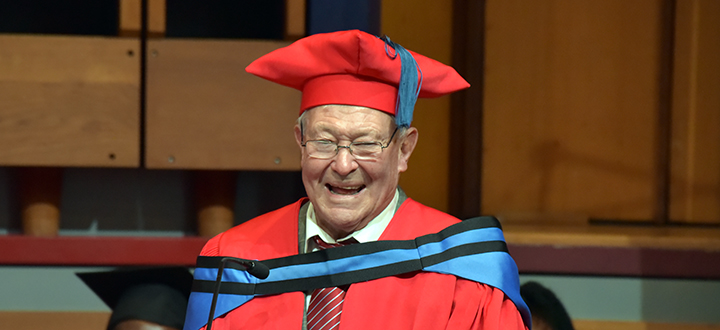 Community champion and agricultural entrepreneur extraordinaire honoured by Unisa
Community champion and agricultural entrepreneur extraordinaire honoured by Unisa
 Ghanaian-born Swede earns PhD in Information Sciences from Unisa
Ghanaian-born Swede earns PhD in Information Sciences from Unisa
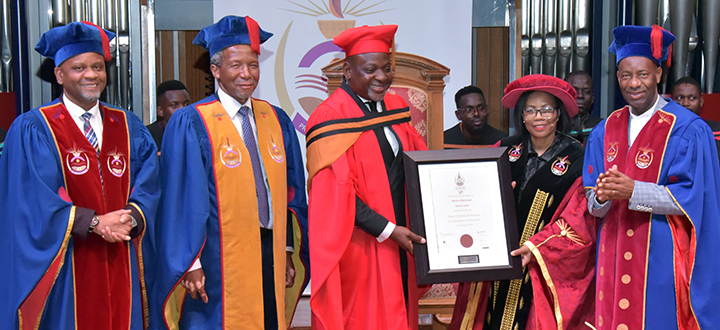 Unisa awards honorary doctorate to exemplary philanthropist and entrepreneur Collen Tshifhiwa Mashawana
Unisa awards honorary doctorate to exemplary philanthropist and entrepreneur Collen Tshifhiwa Mashawana
 Inhlanyelo Hub explores financing and sustainability at the International Conference on Business Incubation
Inhlanyelo Hub explores financing and sustainability at the International Conference on Business Incubation
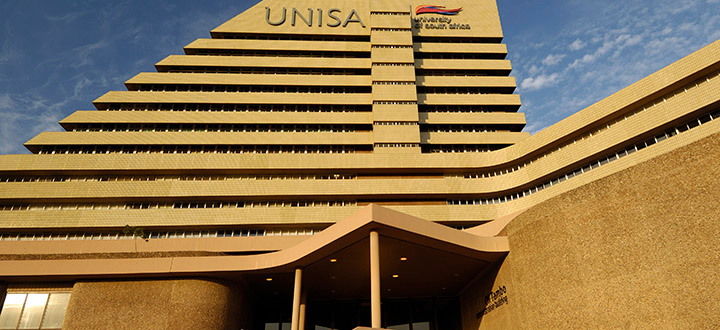 Unisa remains anchored among the waves
Unisa remains anchored among the waves